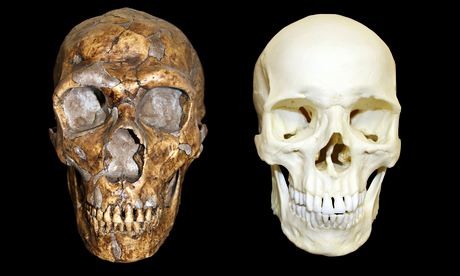
Neanderthal Man wasn't exactly the troglodyte he imagined. He was as intelligent as modern humans and this conclusion has been confirmed by yet another study (by researchers at the University of Leiden, Netherlands) on this early human species – and it is not the first investigation to conclude this.
Neanderthals emerged approximately 350,000 to 400,000 years ago and became extinct around 30,000 years ago, having spread to various parts of Europe and Asia. The reasons for the disappearance of the species are controversial and for a long time it was thought that the extinction of Neanderthals was due to the cognitive disadvantage they suffered in relation to their “more evolved” relatives, the Homo sapiens .
Researchers C. Michael Barton (Arizona State University) and Julien Riel-Salvatore (University of Colorado) concluded that the approximations between Neanderthals and our species were more intense than that many imagined. Scientists have developed studies that indicated that genetic traits between the two species are shared because crosses between them were common. They suggest that Neanderthals became extinct because they reached the point where their population was significantly lower. Scholars believe that the process of miscegenation may have been the fate of our ancestral cousins, who would have dwindled through a process in which their presence was being diluted by mixing with individuals of a species that became numerically much superior, in short, they did not accept a long-running idea that treats extinction as a process in which Neanderthals all but disappeared.
And they don't end their conclusions there:Evaluating material remnants left by Neanderthals, experts also don't think they were "inferior" or less skillful and capable than our species.
P>Wil Roebroeks (University of Leiden) and Paola Villa (University of Colorado) agree with other possibilities regarding what was thought about Neanderthals and their supposed inferiority. They defend the thesis that the oldest and even better-known research ended up inducing a major error of evaluation because researchers used to compare remains of Neanderthal specimens with skeletons of Homo sapiens from the Upper Paleolithic, when, in fact, they should carry out the comparisons. with modern men contemporaries of Neanderthals. According to Paola Villa “this is like saying that people in the 21st century are smarter than those of the 19th because the latter did not have laptops or space travel” and concludes by stating:“What we are saying is that the conventional view of Neanderthals does not It's true.”
The latest research also uses new methods and explores the potential of genetic studies.
